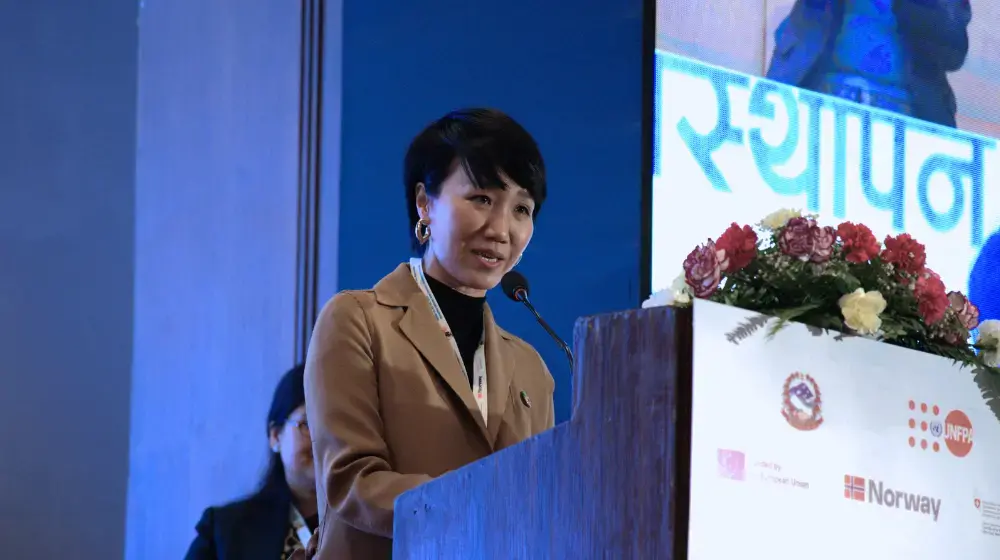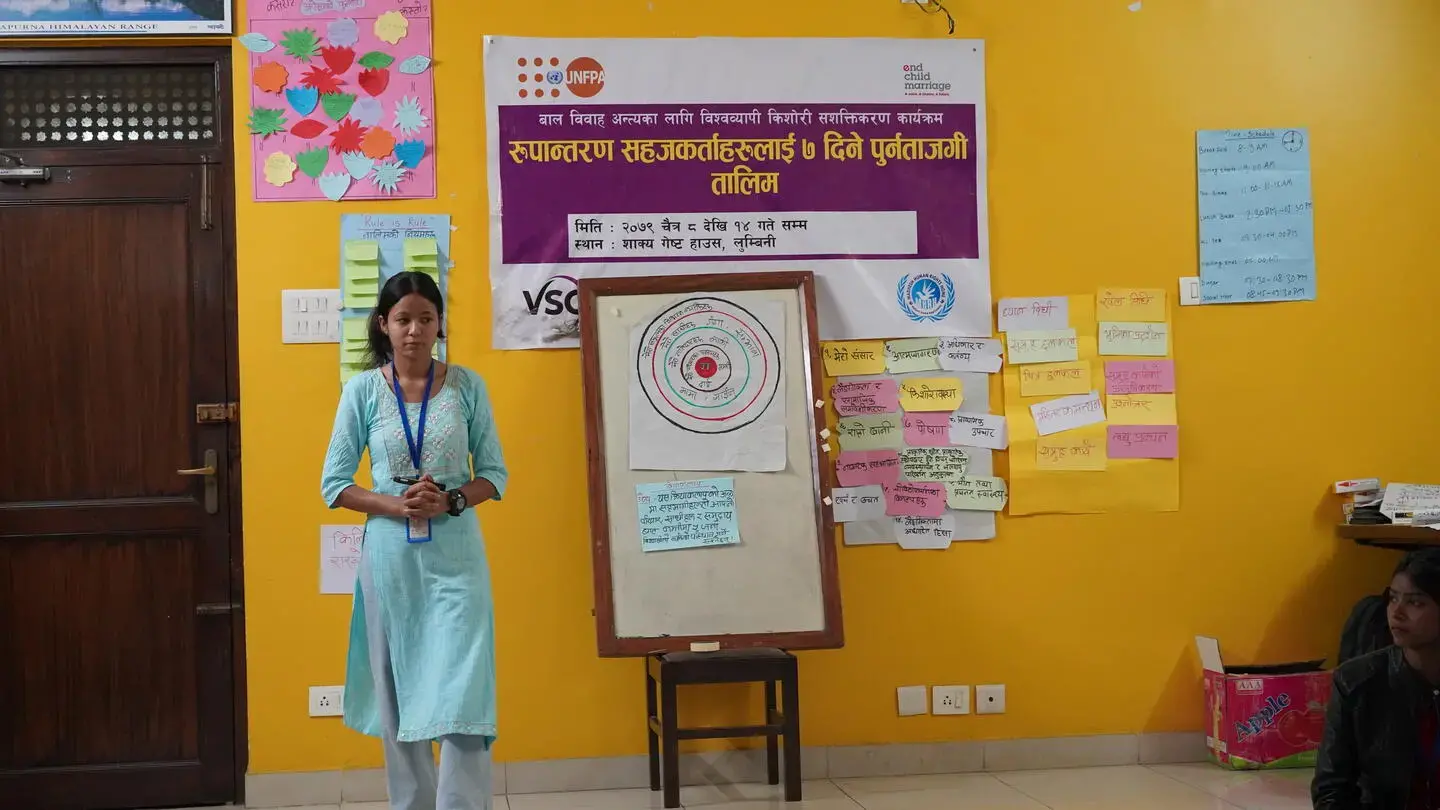Mahendra Jyoti, Kavre District, Nepal - May 6, 2015: Dignity cannot be delivered in a kit alone - it is a human right. But dignity kits have gone a long way in alleviating the spirits of -- and restoring a sense of dignity to -- Bipana Karki in Mahendra Jyoti village and thousands upon thousands of other displaced women and girls in other quake-hit districts who are being reached by UNFPA, the United Nations Population Fund, and its partners on the ground.
20-year-old Bipana Karki gave birth just three weeks ago. The April 25 earthquake left her and her baby homeless. Her husband, like so many men across Nepal, has left the country to seek better prospects elsewhere for him and his young family.
UNFPA estimates that of the 2 million women of reproductive age affected by the disaster, 126,000 pregnant women are in urgent need of health services, as are lactating women like Bipana and their newborns. However, health facilities are overwhelmed, and in many cases damaged or destroyed. Medical supplies are severely depleted. This has compromised access to reproductive health services - including safe deliveries. Although camps for the displaced are being established, such as the one Bipana is at, the condition of the vast majority of affected women and girls remains abysmal.
That's why dignity kits are such an essential component of UNFPA's humanitarian response. Besides reusable sanitary napkins, the kits contain new clothes, towels, soap and other essentials that women and girls need in such a setting. UNFPA customizes the contents according to a country's sociocultural setting - the Nepal dignity kits include a sari, petticoat and shawl, items that the majority of women here use on a daily basis.
"I thought that we would be provided only with food aid," said Bipana after receiving Dignity Kits from UNFPA and the Ministry of Women and Children. "But this package I have received is really too good." Sharmila Thapa, the mother of a six-month-old baby, agreed. "I truly appreciate that our unique needs are being taken care of. Food is important, of course, but proper hygiene and decent clothes make me feel like a normal person again."
Giulia Vallese, UNFPA Representative, and Kristine Blokhus, Deputy Representative, accompanied shipments of Dignity Kits to Mahendra Jyoti village and other areas in Kavre district, one of the hardest-hit by the earthquake. "For me, personally, it's genuinely humbling to witness how our work has such a significant impact," noted Vallese.
"Let's be frank - these women are going through hell, and it's not going to get much easier for them in the immediate future. But they are amazingly resilient, and we're going to do all we can to help within our mandate of providing sexual and reproductive health services and helping prevent gender-based violence." "Since the earthquake happened, we and our partners been working 24/7, responding as quickly as we could, and also planning for the long haul," said Blokhus. "It's wonderful to be out in the field to spend time with these women, and to actually see the practical impact of our reproductive health and dignity kits. Just to see these women smile, even if it's for a few minutes, is truly rewarding."
Experience from previous emergencies, including flood and earthquake responses in Nepal and Pakistan, clearly show that pregnancy-related deaths and gender-based violence increase under these circumstances. Given the massive destruction wrought by the Nepal earthquake, thousands of women may well give birth in appalling conditions, without access to safe delivery services and lifesaving care.
Under the UN Flash Appeal for Nepal, UNFPA has requested support for its humanitarian work under two categories: Reproductive Health (RH) and Gender-Based Violence (GBV). RH and dignity kits form a key component of UNFPA's overall response, which also includes the creation of women-friendly spaces within camps for the displaced and other environments, and the provision of essential reproductive health and medical services including contraception, safer childbirth and post-partum care.
"I'm very lucky actually that my baby and I made it alive, while so many others didn't," said Bipana. "We've lost our home, but we're relatively safe - we are with friends and other family members, we have food, we have a temporary roof over our heads, and now I've got my dignity back."




